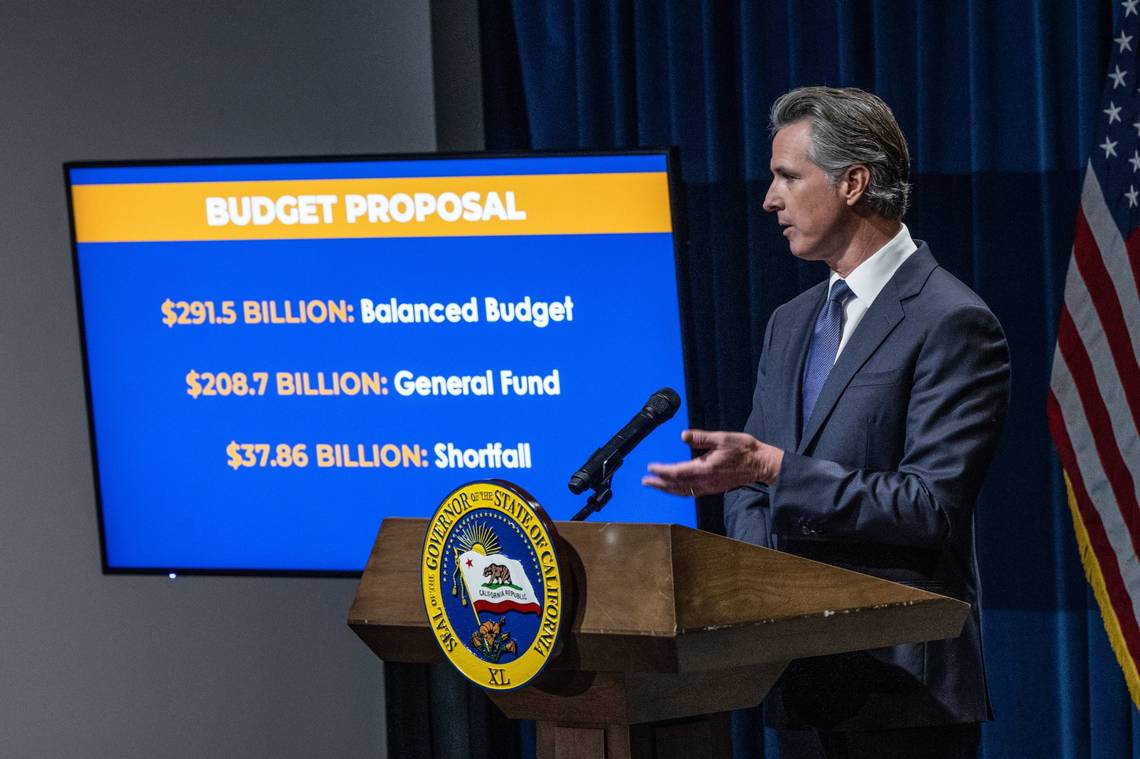California is facing an estimated spending gap of up to $73 billion. Newsom and legislative leaders must negotiate a budget by June 15, before fiscal year 2024-25 starts on July 1.
The proposal from Newsom, Assembly Speaker Robert Rivas, D-Hollister, and Senate President Pro Tem Mike McGuire, D-Healdsburg, would include $3.6 billion in cuts, $5.2 billion in delays and deferrals, $3.4 billion in costs shifted from the general fund to other state funds and $5.2 billion in revenue and borrowing..
A vote in the Legislature could come quickly, with leaders pushing for action by next Thursday. The “early action” plan would reopen budgets from previous years, giving negotiators a head start on balancing the next budget. The new fiscal year begins July 1, and lawmakers and Newsom must agree on a plan by mid-June.
“I thank our legislative leaders for their partnership in taking this major step to address the shortfall with a balanced approach that meets the needs of Californians and maintains a strong fiscal foundation for the state’s future,” Newsom said in a statement.
Newsom during his January budget presentation called for lawmakers to take the early budget action to address the spending gap. McGuire and Senate leaders in mid-March released a “Shrink the Shortfall” plan that largely mirrored the governor’s suggestions.
But Rivas and Assembly leaders did not immediately get on board with the Senate and Newsom. Ahead of the Legislature’s week-long spring recess that began on March 21, the three announced they wanted to take early budget action involving cuts of $12 billion to $18 billion, but they provided no details.
The only action the three parties agreed to before the break was an increase to the managed care organization, or MCO, tax on health insurers that could be used to leverage $1.5 billion in federal funds. The Legislature approved it on March 21, and Newsom signed it on March 25.
On Tuesday, Assembly Democrats caucused to discuss their own early budget action plan. The Sacramento Bee obtained a draft copy of the proposal which broke with Newsom and the Senate in several areas, mostly to push negotiations over certain items down the road to June.
It called for Newsom’s administration to freeze some one-time spending on items from the fiscal 2021, 2022 and 2023 budgets for which money has not yet been allocated. A Legislative Analyst’s Office report from February suggests that freeze could involve about $6.4 billion in undisbursed spending in the 2024-25 fiscal year.
The Assembly plan also proposed deferring action on $1.3 billion in homelessness and housing money. Both of these actions are meant to give the governor and legislative leaders more breathing room during negotiations come this summer.
Rivas on Thursday was pleased the spending freeze and housing and homelessness deferrals made it into the final agreement.
“Insisting on this freeze gives us more dollars and options in June,” Rivas told The Bee.
He characterized the negotiations as a “partnership” and said they were “not adversarial in any way.”
Still, the talks involved “resetting” the relationships between the Assembly, Senate and administration, Rivas said. Both the speaker and McGuire are entering into the budget negotiation process for the first time after taking over the leadership roles from their predecessors.
